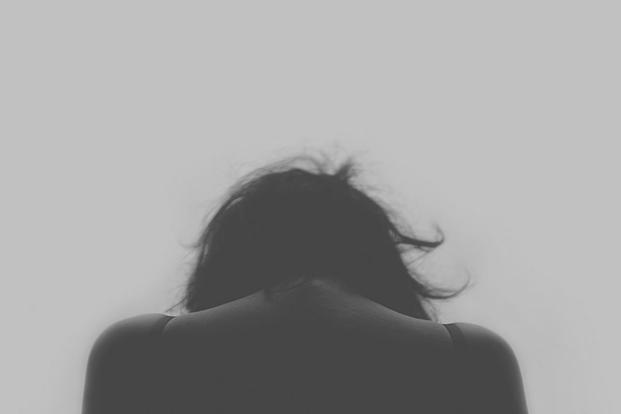If you, a loved one or friend are in crisis or at risk of suicide or self-harm, call or text the National Suicide and Crisis Lifeline at 988.
The military is facing a new challenge understanding the toll combat takes on the female psyche. Combat trauma is common in women; five out of ten women experience a traumatic event.
Women tend to experience trauma differently than men.
While both men and women report the same symptoms of PTSD (hyperarousal, reexperiencing, avoidance, and numbing), some symptoms are more common for women or men.
What is the Difference?
Women are more likely to be jumpy, to have more trouble feeling emotions, and to avoid things that remind them of the trauma than men. Men are more likely to feel angry and to have trouble controlling their anger then women.
Women with PTSD are more likely to feel depressed and anxious, while men with PTSD are more likely to have problems with alcohol or drugs. Both women and men who experience PTSD may develop physical health problems.
Why do Women Experience PTSD?
Women in the military are at high risk for exposure to traumatic events, especially during times of war. Although men are more likely to experience combat, a growing number of women are now being exposed to combat.
Women in the military are at higher risk for exposure to sexual harassment or sexual assault than men. More studies are needed to better understand the effects of women's exposure to both combat and sexual assault.
Do More Women than Men Experience PTSD?
Women are more than twice as likely to develop PTSD than men (10% for women and 4% for men). There are a few reasons women might get PTSD more than men:
- Women are more likely to experience sexual assault.
- Sexual assault is more likely to cause PTSD than many other events.
- Women may be more likely to blame themselves for trauma experiences than men.
Not all women who experience a traumatic event develop PTSD. Women are more likely to develop PTSD if they:
- Have a past mental health problem (for example depression or anxiety)
- Experienced a very severe or life-threatening trauma
- Were sexually assaulted
- Were injured during the event
- Had a severe reaction at the time of the event
- Experienced other stressful events afterwards
- Do not have good social support
Help and Treatment
The VA has established a Women Veterans hotline 855-VA-WOMEN (829-6636) to receive and respond to questions from women veterans, their families about available VA services and resources.
If you, a loved one or friend are in crisis or at risk of suicide or self-harm, call or text the National Suicide and Crisis Lifeline at 988.
You can also check out the VA's PTSD website for more information.
Stay on Top of Your Military Benefits
Not sure what your veteran health care benefits are? Keep up with all the changes and details. Subscribe to Military.com. and get all the latest updates straight to your inbox.











